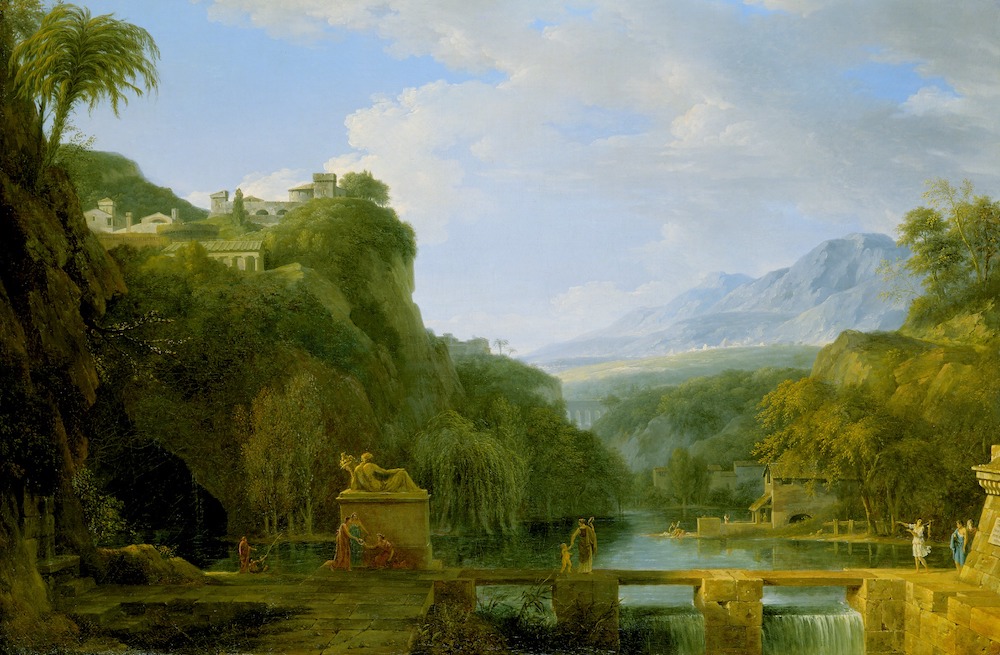
"Landscape of Ancient Greece" (1786) by Pierre Henri de Valenciennes. Art courtesy of the Detroit Institute of Arts.
Ancient peoples and thinkers had sophisticated ideas about living in harmony with nature. From Greek city-states to Maya civilization, people thought that what humans did—how they planted, how they worshipped, how they conducted themselves—could influence both the Earth’s behavior and their own fate. When droughts or volcanic eruptions threatened crops, rulers had to manage panicked citizens while explaining the cosmic reasons for nature’s revolt. Many ancient societies adopted ecological practices emphasizing individual civic responsibility for the benefit of all, and some ancient thinkers developed such ideas as well. What can the ancients teach us about how collective moral values and social habits can connect citizens to the world around us? What were the blind spots in ancient orders that sometimes led to ecological catastrophe? How can understanding ancient mythologies and philosophies about our relationship to nature help us rethink our own? Princeton political scientist Melissa Lane, author of Eco-Republic: What the Ancients Can Teach Us About Ethics, Virtue, and Sustainable Living, UC Santa Barbara archaeologist and co-author of The Maya Forest Garden Anabel Ford, and Yale historian of Ptolemaic Egypt Joseph Manning visit Zócalo to explore what ancient civilizations can teach us about how to live with nature today.
Admission limited to guests who have registered in advance.
The Takeaway
For the Ancients, and for Us, Sustainability Could Be a Civic Virtue
Past Civilizations Knew Their Natural Limits—and the Perils of Abusing the Planet for Personal Gain
The Romans built aqueducts to carry water across continents, the Aztecs perfected aqua-culture gardening, and the 6th-century cisterns of Byzantium still flow beneath the streets of modern-day Istanbul. Some antique …






